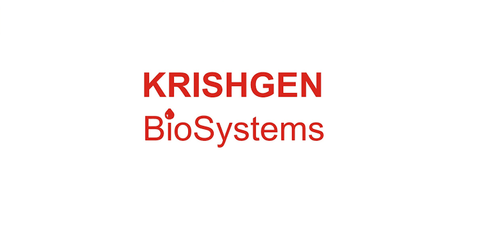Product Description
Human NAD-dependent deacetylase sirtuin-6 (SIRT6/SIR2L6) ELISA Kit | AE19468HU | Abebio
Species Reactivity: Human (Homo sapiens)
Abbreviation: SIRT6
Alternative Name: SIR2L6; sir2-related protein type 6|sirtuin 6|sirtuin type 6
Application: ELISA
Range: 0.312-20 ng/mL
Sensitivity: 0.115 ng/mL
Intra-Assay: ≤4.2%
Inter-Assay: ≤7.8%
Recovery: 0, 96
Sample Type: Serum, Plasma, Other biological fluids
Detection Method: Sandwich
Analysis Method : Quantitive
Test Principale: This assay employs a two-site sandwich ELISA to quantitate SIRT6 in samples. An antibody specific for SIRT6 has been pre-coated onto a microplate. Standards and samples are pipetted into the wells and anySIRT6 present is bound by the immobilized antibody. After removing any unbound substances, a biotin-conjugated antibody specific for SIRT6 is added to the wells. After washing, Streptavidin conjugated Horseradish Peroxidase (HRP) is added to the wells. Following a wash to remove any unbound avidin-enzyme reagent, a substrate solution is added to the wells and color develops in proportion to the amount of SIRT6 bound in the initial step. The color development is stopped and the intensity of the color is measured.
Product Overview: SIRT6 encodes a member of the sirtuin family of proteins, homologs to the yeast Sir2 protein. Members of the sirtuin family are characterized by a sirtuin core domain and grouped into four classes. The functions of human sirtuins have not yet been determined; however, yeast sirtuin proteins are known to regulate epigenetic gene silencing and suppress recombination of rDNA. Studies suggest that the human sirtuins may function as intracellular regulatory proteins with mono-ADP-ribosyltransferase activity. The protein encoded by this gene is included in class IV of the sirtuin family.Sirtuins can be divided into 4 main classes in eukaryotes based on amino acid sequence motifs, with yeast Sir2 belonging to class Ia. The deduced 355-amino acid SIRT6 protein is a class IV sirtuin, a class not present in prokaryotes.
Stability: The stability of ELISA kit is determined by the loss rate of activity. The loss rate of this kit is less than 5% within the expiration date under appropriate storage condition. The loss rate was determined by accelerated thermal degradation test. Keep the kit at 37°C for 4 and 7 days, and compare O.D.values of the kit kept at 37°C with that of at recommended temperature. (referring from China Biological Products Standard, which was calculated by the Arrhenius equation. For ELISA kit, 4 days storage at 37°C can be considered as 6 months at 2 - 8°C, which means 7 days at 37°C equaling 12 months at 2 - 8°C) .
 Euro
Euro
 USD
USD
 British Pound
British Pound
 NULL
NULL












